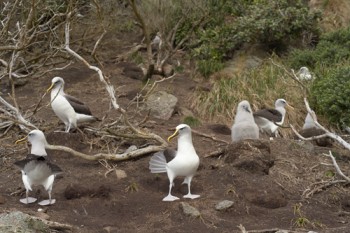Abstracts are due by 14 February for the SCAR Open Science Conference, to be held in Auckland, New Zealand over 25 to 28 August 2014 (click here).
Theme 33 entitled Influence of top predators on ecosystem diversity around Antarctica: present processes and historical signals is relevant to the aims and objectives of the Albatross and Petrel Agreement.
“This session will aim to consider the influence of top predators on ecosystem diversity around Antarctica: present processes and historical signals. Using data from a range of taxonomic groups including seabirds, penguins, seals, and whales, we seek presentations that will explore the relationships between predators and their environment over a range of spatial and temporal scales. We encourage multi-disciplinary presentations that develop or test ecological relationships between top predators and the marine ecosystem. We will seek to bring together experts with a broad range of field and analytical methodologies (e.g. telemetry, remote sensing) to provide a foundation for our current knowledge on how predators influence ecosystem diversity as well as to stimulate ideas for collaborative research to address these issues in the face of environmental variability and climate-driven changes in the Antarctic marine ecosystem.”

Buller's Albatrosses, photograph by Jean-Claude Stahl
With thanks to Yan Ropert-Coudert, Secretary, SCAR Life Sciences Group for information.
John Cooper, ACAP Information Officer, 15 January 2014

 English
English  Français
Français  Español
Español